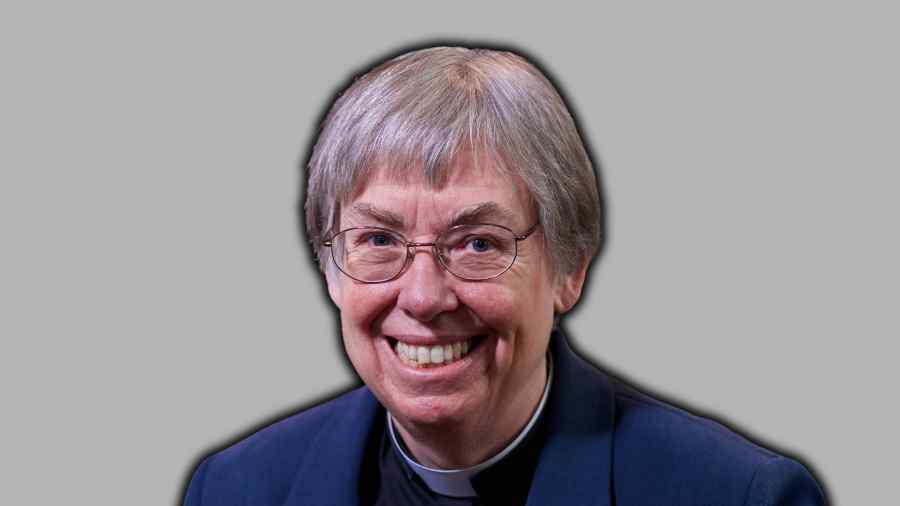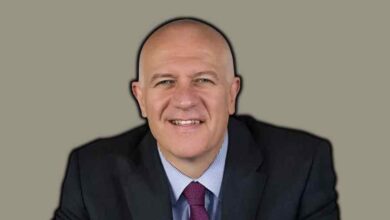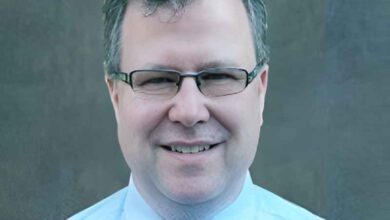Angela Tilby: A Voice of Faith, Reason, and Reflection in Modern Christianity

Angela Tilby is a renowned British theologian, Anglican priest, writer, and broadcaster whose influence extends far beyond the walls of the church. Known for her eloquence, depth of thought, and compassionate understanding of human spirituality, she stands as one of the most respected figures in modern Christian theology. Her life’s work bridges faith and intellect, ancient traditions and contemporary issues, showing that religion can remain profoundly relevant in today’s rapidly changing world.
Born in 1950, Angela Tilby has worn many hats throughout her remarkable career — from being a BBC producer to serving as Vice-Principal at one of the leading theological colleges in Cambridge, and from being a parish priest to a regular contributor on BBC Radio 4’s Thought for the Day. Her journey is not just about religious service, but about thoughtful engagement with life, society, and spirituality in ways that resonate deeply with ordinary people.
Early Life and Education
Angela Clare Wyatt Tilby was born on 6 March 1950. She studied at Girton College, Cambridge, one of the university’s most respected institutions, where she earned her Bachelor of Arts degree in 1972. Her academic journey was driven by a deep curiosity about theology, history, and the human condition. Later, she went on to train for ministry at Cranmer Hall, Durham, a prominent theological college known for shaping many influential church leaders.
This combination of intellectual rigour and spiritual formation gave Tilby a strong foundation for her later work — blending theological precision with a deep empathy for human experience. Her time in academia nurtured not only her intellect but also her sense of calling, which would eventually lead her into both broadcasting and ordained ministry.
Career in Broadcasting and the BBC Years
Before she entered full-time ministry, Angela Tilby spent over two decades working for the BBC, particularly in its Religious Department. During this period, she developed a strong reputation as a thoughtful and articulate producer who could translate complex spiritual ideas into accessible content for the general public.
Her work included contributions to some of the BBC’s most respected religious programmes, such as Thought for the Day and Songs of Praise. Through these platforms, Tilby became a familiar voice to listeners across the United Kingdom — a voice that was calm, reflective, and often deeply moving. She used the airwaves to address moral dilemmas, cultural tensions, and personal struggles with an honesty that was rare in mainstream media.
Her years at the BBC were not just about broadcasting; they were about communication — about finding ways to express eternal truths in a language that modern audiences could understand. This ability to blend theology with storytelling became a hallmark of her later career in both writing and ministry.
Ordination and the Call to Ministry
After 22 years in media, Tilby followed her deeper vocation — to serve as a priest. She was ordained as a deacon in 1997 and as a priest the following year in the Church of England. Her transition from broadcasting to ministry reflected a desire to bring her theological insight and communication skills directly into the life of the church.
Tilby served as Honorary Priest at St John the Evangelist, Cambridge, while also teaching at Westcott House, one of the Church of England’s most prestigious theological colleges. From 2001 to 2006, she held the position of Vice-Principal there, shaping a generation of future clergy. She combined her academic expertise with pastoral sensitivity, helping students understand theology not merely as a set of doctrines, but as a living and breathing reality.
In 2007, she became Vicar of St Bene’t’s Church in Cambridge, one of the city’s oldest and most historically significant parishes. Her sermons and pastoral care attracted both students and locals, many of whom were inspired by her authenticity and depth of faith.
Role at Christ Church Cathedral, Oxford
In 2011, Angela Tilby moved to Oxford, where she was appointed Diocesan Canon of Christ Church Cathedral — a position that combines spiritual leadership with administrative and educational responsibilities. In this role, she also worked as a Ministerial Development Adviser, guiding clergy in their professional and spiritual growth.
Her work at Christ Church reflected her lifelong interest in connecting intellectual reflection with lived faith. She encouraged clergy to see theology not as abstract theory but as a tool for nurturing compassion, justice, and wisdom in their communities.
After retiring from full-time ministry in 2016, she was made Canon Emeritus of Christ Church. She later became an Honorary Chaplain and Honorary Canon at Portsmouth Cathedral, continuing her engagement with the church even in her retirement years.
Writing and Publications
Angela Tilby’s impact as a theologian is not confined to her sermons or broadcasts. She is also a prolific author whose books have become popular among both clergy and lay readers. Her works explore themes such as prayer, spirituality, sin, and the mysteries of faith.
Some of her notable books include:
- Son of God (2002)
- Let There Be Light: Praying with Genesis (2006)
- Everyday Prayer: A Little Office Book (2007)
- The Seven Deadly Sins: Their Origin and Meaning (2009)
- Soul: God, Self and New Cosmology (2013)
Each of these works reveals her distinctive style — intelligent yet compassionate, scholarly yet deeply human. Tilby’s writing invites readers to rediscover spirituality in the ordinary, to see prayer as an everyday dialogue rather than a distant ritual.
Voice on Contemporary Faith and Society
Angela Tilby has become known for her thought-provoking commentaries on modern life and religion. In her radio talks and public lectures, she frequently discusses how Christianity can remain meaningful in a secular and often sceptical society.
Her perspective is refreshingly balanced: she acknowledges the challenges facing the church — such as declining attendance, generational gaps, and cultural shifts — but she also insists on the continuing relevance of faith. For Tilby, Christianity is not about escaping the modern world but about engaging it with honesty and grace.
Her reflections often touch on real-world issues such as mental health, inequality, women’s roles in leadership, and the spiritual consequences of technology. She has spoken empathetically about topics like long-COVID and chronic fatigue, drawing connections between physical suffering and spiritual resilience.
Advocacy for Women in Ministry
One of Angela Tilby’s most significant contributions to the Church of England has been her support for the inclusion and recognition of women in ministry. In her 2004 sermon marking ten years of women priests, she declared that “women priests have not unhinged the church.” This bold statement resonated deeply, challenging lingering scepticism about gender equality in ecclesiastical leadership.
Tilby’s advocacy is rooted not in political rhetoric but in theology — in the belief that every person, regardless of gender, reflects the image of God and can serve with authority and grace. Her own ministry stands as a testament to that conviction.
Theological Style and Thought
Angela Tilby’s theology blends intellectual depth with pastoral warmth. She draws from early Christian writers, medieval mystics, and modern philosophers, yet her conclusions are always practical and relevant to everyday life. Her approach is contemplative but never detached — she invites readers and listeners to think deeply about faith while also grounding it in lived experience.
Her writings on prayer and spirituality highlight the importance of stillness, reflection, and honesty before God. She often reminds readers that spiritual maturity comes not from perfection but from humility and openness to divine transformation.
Public Speaking and Media Presence
Even after her formal retirement, Tilby continues to be a familiar voice in British religious broadcasting. Her appearances on BBC Radio 4’s Thought for the Day continue to attract attention for their clarity and compassion. She has a rare gift for addressing contemporary issues — from political divisions to personal suffering — through the lens of timeless spiritual wisdom.
Her tone is never preachy; instead, it is reflective and invitational. Whether she speaks about environmental responsibility or personal loss, she always manages to connect with listeners on an emotional and intellectual level.
Legacy and Influence
Angela Tilby’s influence within British Christianity and beyond is profound. As an educator, she has shaped future priests and theologians. As a broadcaster, she has brought spirituality into the public conversation. As a priest, she has guided countless individuals toward faith and understanding.
Her legacy lies in her ability to bridge gaps — between faith and reason, church and society, theology and everyday life. She represents a generation of thinkers who see religion not as a set of rules but as an ongoing dialogue between God and humanity.
Personal Qualities and Character
What makes Angela Tilby so admired is her authenticity. She does not speak from a pedestal but from personal experience, acknowledging doubts and struggles as part of the spiritual journey. Her combination of humility and intelligence has earned her respect among both believers and non-believers.
Those who have worked with her describe her as calm, thoughtful, and genuinely compassionate — qualities that shine through in her sermons and writings. Her ability to listen, to empathise, and to articulate complex truths simply is what sets her apart.
Continuing Relevance
In a world where faith often seems disconnected from modern realities, Angela Tilby offers a refreshing reminder that spirituality still matters. Her work encourages people to seek depth over distraction, meaning over noise, and reflection over reaction. She shows that theology is not an outdated discipline but a living dialogue that can enrich our understanding of life, purpose, and community.
As society grapples with uncertainty — from technological change to moral confusion — voices like hers are essential. She challenges both believers and sceptics to look inward and to rediscover the sacred dimension of existence.
Conclusion
Angela Tilby stands as one of the most inspiring theological voices of her generation. Her life’s journey — from Cambridge scholar to BBC producer, from parish priest to cathedral canon — reflects a profound commitment to truth, compassion, and faith. Through her books, broadcasts, and sermons, she has helped countless people make sense of spirituality in a complex world.
Her influence continues to grow because her message is timeless: that faith is not about blind belief but about seeking wisdom, love, and understanding in every moment of life. Angela Tilby’s legacy reminds us that even in a fast-moving, digital age, the quiet strength of reflection and faith can still change hearts and minds.



